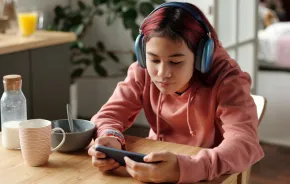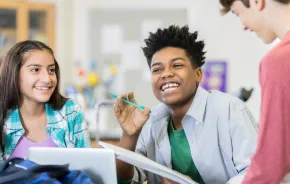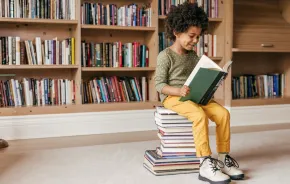How much influence do rock stars, celebrities, and peers have on our kids? What can parents do about it?
A lot of parents dislike Miley Cyrus' suggestive persona. Some call her new video, "23," which came out last week, is risque (Cyrus is scantily clad, sexually suggestive and she smokes in the video, just to name a few examples). Parents should be concerned.
Miley is an icon to young girls everywhere, and research shows that tweens and teens do emulate their favorite celebrities. Some 60 percent of teens want to get a tattoo or piercing in the same place as a celebrity. Half of them smoke or drink with peers because they see their idols do it. Over three-fourths agree that teens are likely to diet after a star loses weight. Thirteen percent of teens in the survey admitted to dieting to make themselves look more like a celebrity.
But celebrities' influence is only one part of the equation. Teens and tweens are also impacted by peer pressure.
As we see in this month’s ParentMap feature on peer pressure, even in our celebrity-obsessed culture, good old-fashioned peer pressure is definitely alive and well too. Nine out of ten teens admit to being influenced or pressured by peers. Nearly three-quarters said that giving in to peer pressure had boosted their social standing.
Peer pressure influences behavior at a younger age than previously thought. A new study shows that kids feel social pressure as early as age 9.
Then there is the “The Facebook Effect.” A new study showed that teens were more likely to smoke or drink when they saw photos in the Facebook feed of friends doing the same things.
Teens are immersed in social media, and seeing photos and posts on Instagram, Facebook Tumblr, and Twitter makes it seem like literally everyone is engaging in these activities. A couple of decades ago, when teens used cigarettes, alcohol or drugs, it wasn’t put up on a platform for the world to see. Today, because of a constant stream of photos, tweets, and posts, teens who don’t do these things can really feel like they are the only ones not taking part.
There are a few things parents can do that make a big difference:
1. Encourage a strong sense of self. Choosing his or her own clothes, hairstyle, bedroom decorations, and other expressions of style. The more connected a child feels to his or her own identity, the less swayed he’ll be by celebrities or peer pressure.
2. Identify the appeal. When a child identifies strongly with a celebrity, ask your child what it is about that person that appeals to her. Help your child see beyond a celebrity’s look or persona.
3. Use celebrity slip-ups as teachable moments. Ask your child if she knows anyone who’s done anything like that, or how she thinks the celebrity feels about the incident. These can be excellent conversations about values, decision-making, and potential regrets.
4. Always friend your child. Experts agree, if your child is on social media, you need to be, too. Only if you’re active on the social media site, will you be able to see what your child is seeing. Don’t wait until there’s a problem with peer or celebrity pressure—friend or follow your teen today.
I'll report more about the "Miley effect" in ParentMap's November issue.











